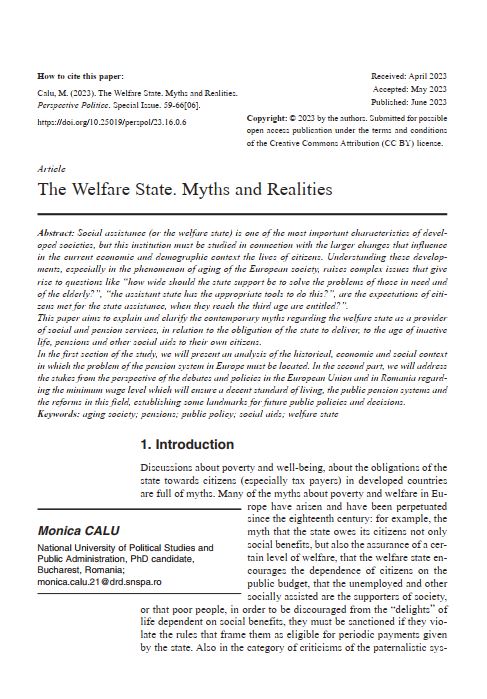The Welfare State. Myths and Realities
Abstract
Social assistance (or the welfare state) is one of the most important characteristics of developed societies, but this institution must be studied in connection with the larger changes that influence in the current economic and demographic context the lives of citizens. Understanding these developments, especially in the phenomenon of aging of the European society, raises complex issues that give rise to questions like “how wide should the state support be to solve the problems of those in need and of the elderly?”, “the assistant state has the appropriate tools to do this?”, are the expectations of citizens met for the state assistance, when they reach the third age are entitled?”. This paper aims to explain and clarify the contemporary myths regarding the welfare state as a provider of social and pension services, in relation to the obligation of the state to deliver, to the age of inactive life, pensions and other social aids to their own citizens. In the first section of the study, we will present an analysis of the historical, economic and social context in which the problem of the pension system in Europe must be located. In the second part, we will address the stakes from the perspective of the debates and policies in the European Union and in Romania regarding the minimum wage level which will ensure a decent standard of living, the public pension systems and the reforms in this field, establishing some landmarks for future public policies and decisions.

Downloads
Published
Issue
Section
License
Copyright (c) 2023 Monica CALU

This work is licensed under a Creative Commons Attribution-NonCommercial-ShareAlike 4.0 International License.



